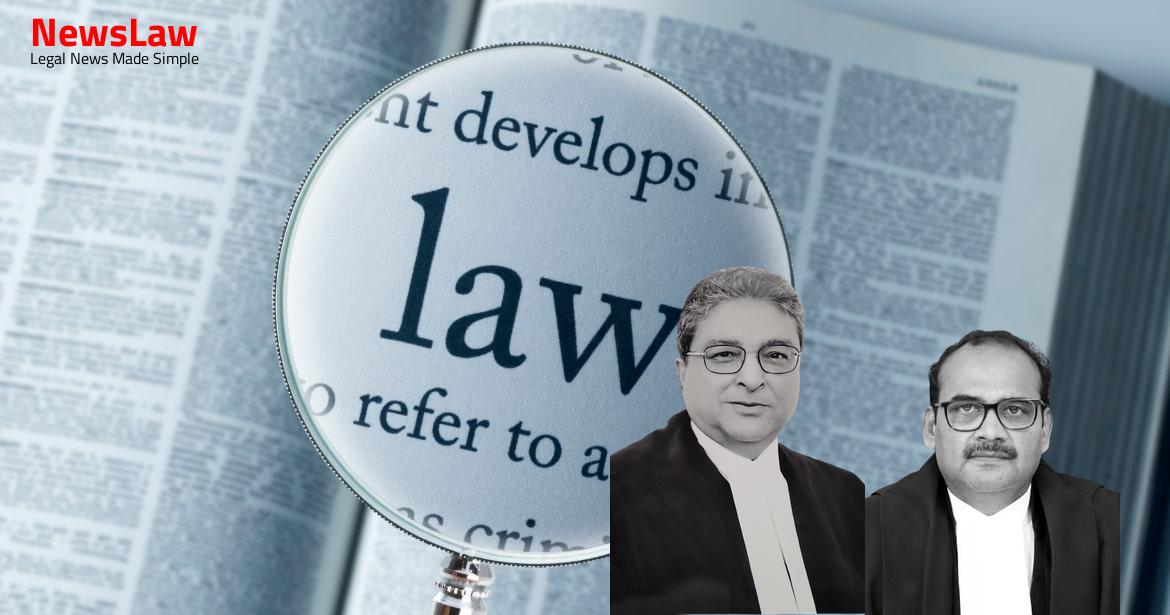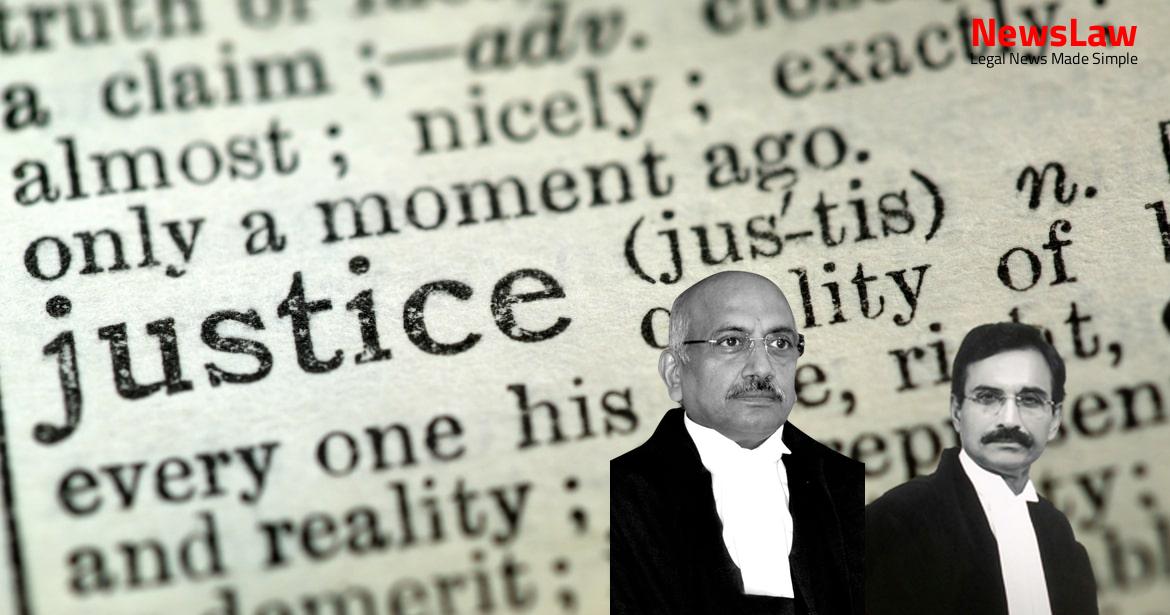Explore how a recent legal case involving an industrial dispute sheds light on the importance of understanding jurisdiction and the standard of proof in such matters. The court’s detailed examination of these key legal principles provides valuable insights for legal practitioners and parties involved in similar disputes. Let’s delve into the complexities of this case and unravel the nuances of legal analysis in industrial dispute proceedings.
Facts
- The respondent-workman was charged with delinquency on 12 January, 1988 for drunkenness, manhandling senior officers, and abusing management.
- There were incidents of abusive language and threats towards the management by Mr. Misra and Mr. Than Singh.
- Mr. Seth was advised to write a court case in the attendance register by Mr. Sikka, Assistant Manager (Operation).
- On the same day, the respondent, along with others, entered the bank premises in a drunken state and discussed marking late in the attendance register.
Also Read: Recovery of Misappropriated Temple Funds: Court’s Legal Analysis
Analysis
- The Tribunal exceeded its jurisdiction by converting itself into an appellate authority and revisiting the evidence of the domestic enquiry.
- The Tribunal applied the incorrect standard of proof by expecting the charges to be proven beyond reasonable doubt, akin to criminal justice system, instead of the standard of preponderance of probabilities in domestic enquiries.
- The Tribunal overlooked the principles of charge to be proved on the basis of evidence available and interfered with the findings without proper justification.
- The High Court also erred by upholding the Tribunal’s decision without considering the fundamental principles governing domestic enquiries.
- The Tribunal should have focused on whether the procedure of holding the enquiry was violated, whether principles of natural justice were followed, and whether the punishment imposed was proportionate to the alleged misconduct.
- The Tribunal’s interference with the findings of the enquiry, which resulted in dismissal of the respondent, was deemed unsustainable and beyond its statutory powers under Section 11-A of the Industrial Disputes Act, 1947.
- The acts constituting gross misconduct under paragraph 19.5 of the Bipartite Settlement dated 19 October, 1966 were outlined.
- These include drunkenness or riotous, disorderly, or indecent behavior on the premises of the bank.
- Additionally, doing any act prejudicial to the interest of the bank was listed as a charge.
- The individual is accused of engaging in the mentioned acts of misconduct.
- Learned counsel for the respondent argued that the appellant targeted a poor workman who has spent his life in litigation.
- The respondent is claiming his legitimate dues, which have been paid to him.
- Any interference by the Court may result in prejudice to the respondent.
Also Read: Determining Seniority in Delayed Appointments: Legal Analysis
Decision
- The appeal succeeds and is allowed, setting aside the judgment of the High Court affirming the Award passed by the Tribunal.
- No recovery shall be made in reference to the payment made to the respondent-workman during the interregnum period.
- Application(s), if any, shall stand disposed of.
- In light of the peculiar facts where the workman was paid a specific amount and reached superannuation, no recovery shall be made.
- No recovery of back wages despite the dismissal from service upheld by the domestic enquiry.
Also Read: Legal Analysis in Assault and Homicide Case
Case Title: STANDARD CHARTERED BANK Vs. R.C. SRIVASTAVA (2021 INSC 574)
Case Number: C.A. No.-006092-006092 / 2021



